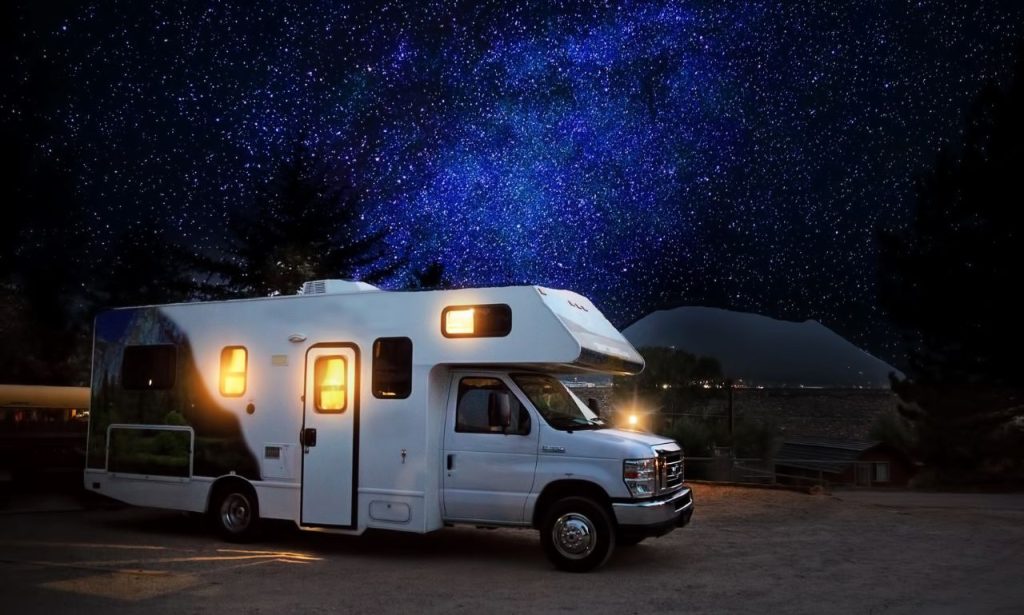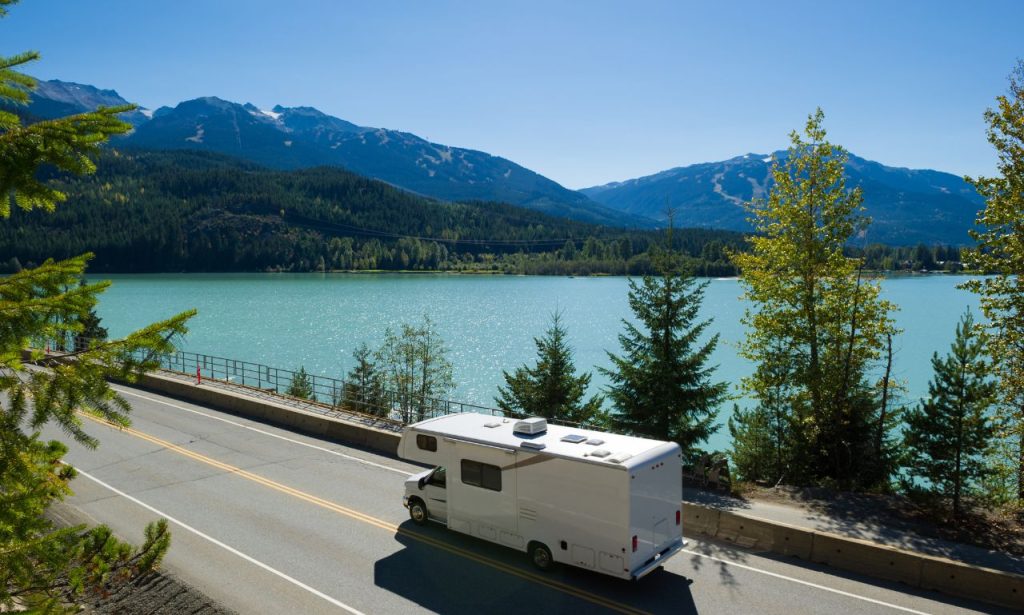When you think about road trips, an RV is probably one of the first things that come to mind. It’s synonymous with freedom, adventure, and the open road. But before you embark on your journey, it’s crucial to understand how many people can travel in an RV safely and legally. This comprehensive guide will walk you through everything you need to know, from RV passenger laws to the best size motorhome to buy, ensuring you have a safe and enjoyable trip.
What Are RV Passenger Laws?
RV passenger laws vary significantly from state to state and even between countries. Generally, the number of people who can travel in an RV is determined by the number of seat belts available. Every occupant must have a seat belt, and it’s illegal to exceed this capacity.
Understanding these laws is crucial because they are designed to ensure the safety of everyone on board. For example, in the United States, the Federal Motor Vehicle Safety Standards (FMVSS) regulate the installation of seat belts in RVs. However, individual states may have additional regulations, so it’s essential to check the local laws before you travel.
What Are RV Seat Belt Laws?

Seat belt laws are a critical aspect of RV travel. These laws dictate that every passenger in an RV must be seated in a designated seat and wear a seat belt while the vehicle is in motion. This rule applies not just to the driver and front-seat passenger but to all occupants.
Some states have more stringent seat belt laws than others. For instance, in California, all passengers must wear seat belts, and children under the age of 8 must be secured in a car seat or booster seat. Failure to comply with these laws can result in hefty fines and, more importantly, increased risk of injury in the event of an accident.
Can Passengers Walk Around in an RV While Driving?
One of the most common questions new RV owners ask is whether passengers can move around while the RV is in motion. The short answer is no. It’s unsafe and illegal for passengers to walk around in an RV while it’s moving. All passengers must remain seated and buckled up at all times.
This rule exists for a good reason. In the event of a sudden stop or accident, anyone not seated and belted is at significant risk of injury. Even at low speeds, the force of a sudden stop can throw a person across the RV, potentially causing severe injuries.
Are There Exceptions to RV Passenger Laws?
While the general rule is that all passengers must be seated and buckled up, there are some exceptions. For example, in some states, RVs that are equipped with a living area may allow passengers to use certain facilities, like the bathroom, while the vehicle is in motion. However, these exceptions are rare and usually come with strict conditions.
It’s essential to check the specific laws in the states you’ll be traveling through. Some states may allow certain activities in the living area while others do not. Always prioritize safety and follow the most stringent regulations to ensure everyone’s well-being.
How Do Passengers Travel in an RV?
Traveling in an RV offers a unique experience compared to traditional road trips. The key to a successful journey is preparation and understanding the dynamics of RV travel. Here are some tips to ensure a smooth ride:
- Seat Belts for Everyone: Ensure that every passenger has a designated seat with a seat belt. This rule is non-negotiable for safety reasons.
- Comfort and Convenience: While seated, passengers can enjoy the amenities of the RV, such as watching TV, playing games, or reading. However, these activities should not compromise safety.
- Regular Stops: Plan regular stops to allow passengers to stretch their legs, use the bathroom, and grab a snack. This breaks up the journey and keeps everyone fresh and alert.
- Safety First: Always adhere to traffic laws and speed limits. The size and weight of an RV mean it handles differently from a regular car, so drive cautiously.
What Is the Best Size Motorhome to Buy?
Choosing the right size motorhome depends on several factors, including the number of people traveling, the amenities you need, and your driving comfort. Here’s a breakdown of the different sizes and their features:
- Class A Motorhomes: These are the largest and most luxurious RVs, often resembling a bus. They can comfortably accommodate 6-8 people, making them ideal for large families or groups. They come equipped with full kitchens, bathrooms, and multiple sleeping areas.
- Class B Motorhomes: Also known as campervans, these are the smallest RVs. They are perfect for couples or small families, typically accommodating 2-4 people. They offer basic amenities like a small kitchen and bathroom.
- Class C Motorhomes: These RVs are a mid-size option, offering a good balance between space and drivability. They can accommodate 4-6 people and come with many of the amenities found in Class A motorhomes but on a smaller scale.
Seating Capacities By RV Type
Understanding the seating capacities of different RV types is crucial for planning your trip. Here’s a table summarizing the seating capacities:
| RV Type | Seating Capacity | Amenities |
| Class A Motorhome | 6-8 | Full kitchen, bathroom, beds |
| Class B Motorhome | 2-4 | Small kitchen, bathroom |
| Class C Motorhome | 4-6 | Kitchen, bathroom, beds |
| Travel Trailer | Varies | Depends on size and model |
| Fifth Wheel | Varies | Depends on size and model |
Can You Add Seat Belts To An RV?
If you find that your RV doesn’t have enough seat belts for your needs, you might wonder if you can add more. The good news is that it’s possible, but it’s not always straightforward. Adding seat belts to an RV involves several considerations:
- Professional Installation: Seat belts must be installed correctly to ensure they provide adequate protection. This usually requires professional installation.
- Structural Integrity: The frame of the RV must be able to support the seat belts. This may involve reinforcing certain areas to ensure safety.
- Compliance with Laws: Any modifications must comply with local and federal laws. It’s essential to check regulations to ensure your RV remains legal.
Can You Sleep Or Use The Bathroom In A Moving RV?

One of the perks of traveling in an RV is the ability to carry your home with you. However, there are strict rules about using the facilities while the vehicle is in motion. Generally, it’s not safe or legal to sleep or use the bathroom while the RV is moving.
While some states may allow limited use of the bathroom, it’s best to plan regular stops. This ensures that everyone remains safe and comfortable. Sleeping should always be done when the RV is parked, as the motion can make it difficult to rest and poses safety risks.
Conclusion
Traveling in an RV is a fantastic way to explore new places and enjoy the freedom of the open road. However, understanding how many people can travel in an RV safely and legally is crucial. By adhering to RV passenger and seat belt laws, choosing the right size motorhome, and ensuring all modifications meet legal standards, you can enjoy a safe and memorable journey.
ALSO READ: How to Clean Orange Mold in Shower
FAQs
Yes, but it requires professional installation and must comply with safety regulations.
Regulations vary, so it’s essential to check the laws in each state you plan to travel through.
It’s safest for pets to be secured in a crate or harness while the RV is in motion.
This depends on the number of seat belts and the RV’s weight capacity.
Yes, but you must ensure the towing setup is safe and complies with all regulations.




